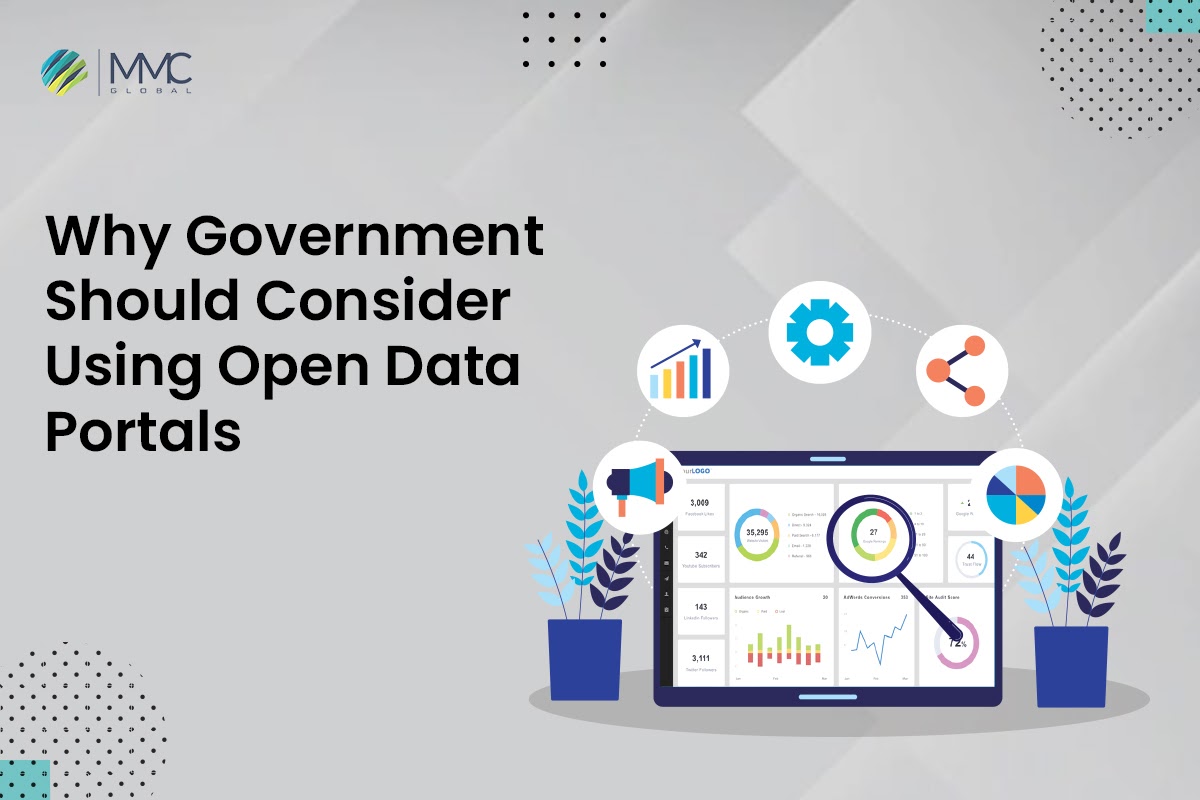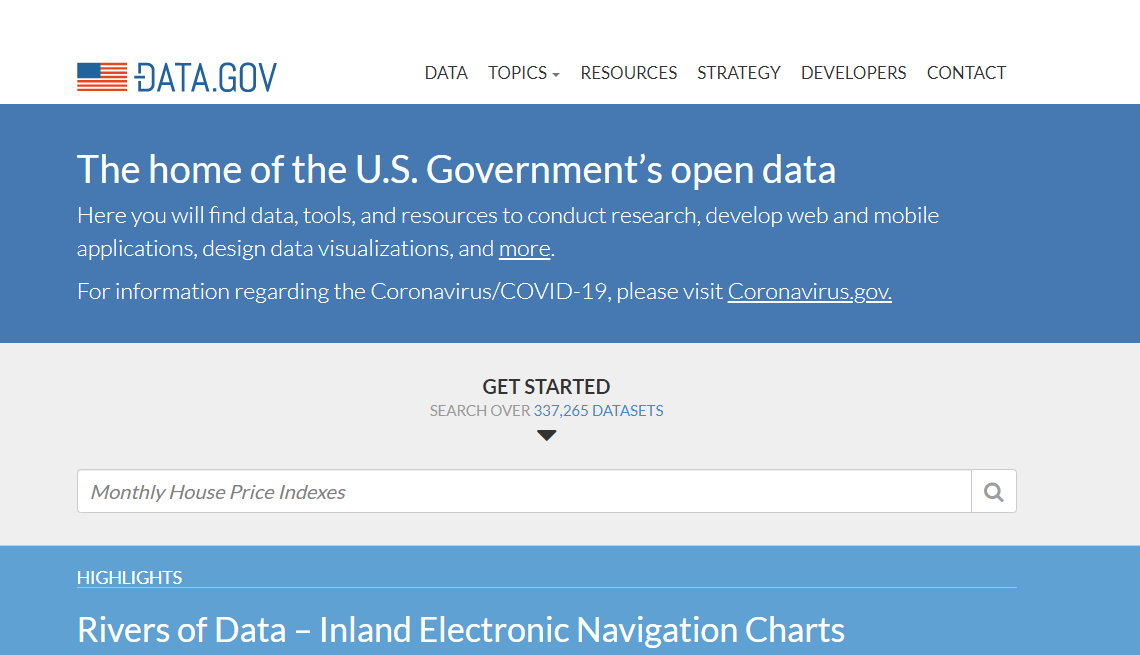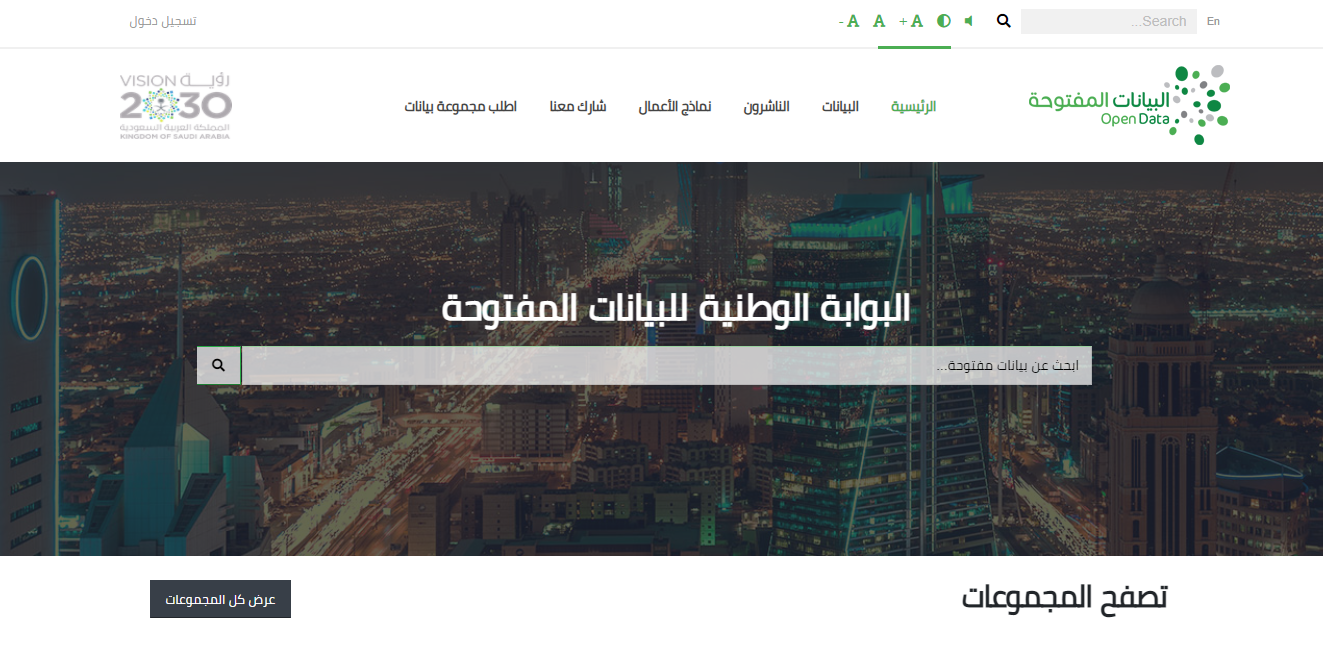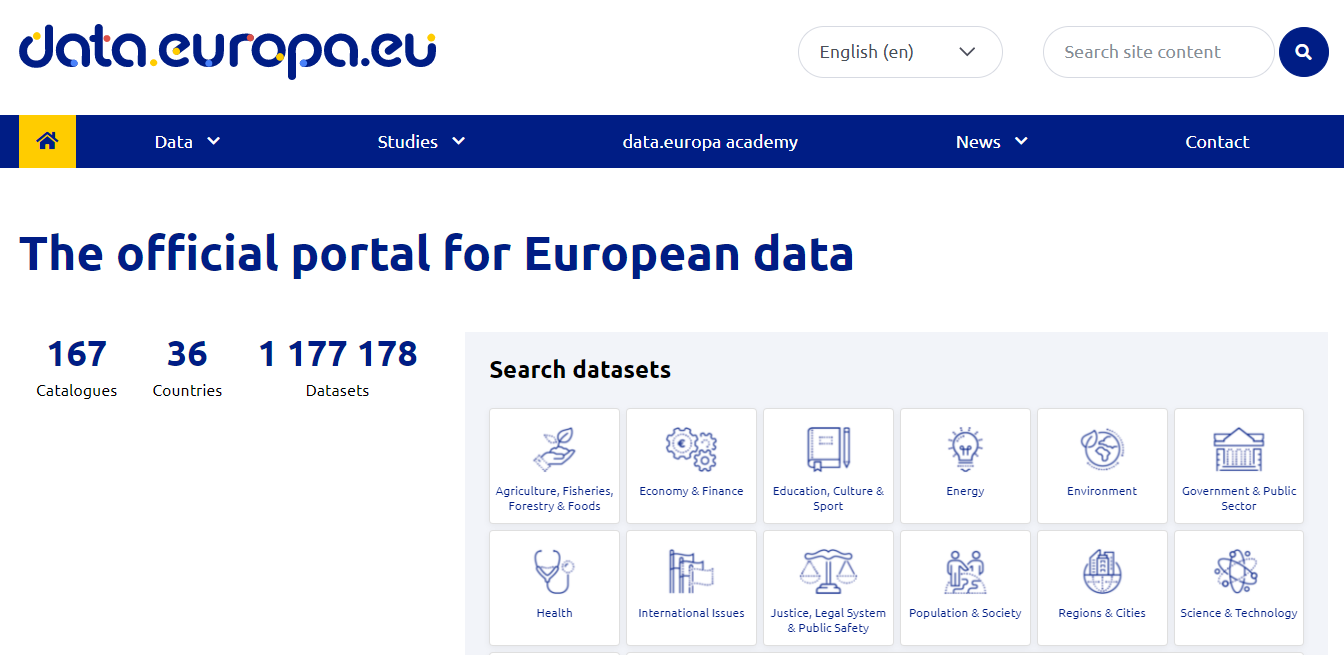Why Government Should Consider Using Open Data Portals


The massive amount of information issued by the government, companies, and NGOs shared in the open platform is called Open Data portals. Open Data portals in the government sector are similar to your understanding as everyone uses the platforms to get extent and valid information that should be accessible, machine-readable, cost, and integrity to reuse and reshare data.
Do you know! Information – refers to the raw data that needs to be arranged or processed because random data is useless until it gets arranged. When the data is gathered, recorded, organized, and presented in the least simple way that makes it authentic information.
The scenario of data processing into the open data portals must raise the question of how data is categorized over the continuum across the globe. You can find multiple portals to experience the open data platform in the government sector of different countries such as the National Open Data Platform of Saudi Arabia, the U.S. Department of Health and Human Services (USA), etc.
Scope Of Open Data in Government Sector
The scope of open data portal may vary from regional, country-wide, or globally. It is defined and structured data. Either it can be a hospital and healthcare performance data to the local census statistical data.
Governments collect and exchange vast quantities of data on a variety of issues, but corporations and other private organizations also have data on sales transactions, shipping trends, and medical records that might be made more accessible. The value of data is determined by its degree of detail, authenticity, and interoperability.
For instance, the aggregated data that contain 500 data sets annually are processed for snatching mobile phones. Although, it is important to release data annually less effectively than real-time data gathered such as the more specific data followed by weekly or daily, on-time, or indicate the location.
Moreover, data followed by the standard format are more reliable and have potential value to the readers than data that are unstructured and nonstandard formats.
The readers, sometimes, refer to open data as “big data”, “MyData” or “Big Data Analytics” that is issued by the government open data portal. These buzzwords are more confusing and create difficulty while they are far more different from each other and fall in different dimensions.
Big Data
Big data refers to information that is becoming more abundant and real-time, as well as diversified in terms of origins and formation. It serves as a repository for ongoing research and analysis.
Big Data Analytics
Big data analytics is sifting through massive volumes of data to find insights, such as process efficiencies and linkages between events, that may help businesses gain a competitive edge and enhance business functions.
MyData
MyData refers to information about a single customer to which that customer has been allowed access. People may fix common errors, obtain real-time and background data about themselves (such as their medical condition and financial position), and evaluate themselves to others once they have accessibility. Individuals can also select how their personal data is handled in particular instances.
Why is open data gaining traction?
For many years, there has been an increase in interest in open data. But it is gaining momentum and consideration now because the trend is gaining traction and is on the minds of governments, non-governmental organizations (NGOs), corporations, citizens/consumers, and the media.
In the government sector, the information is now accessible at low cost and in machine-readable formats. Companies, governments, and consumers gather, record, and exchange a large and growing amount of data, ranging from health records and academic accomplishment scores to site-specific electricity use measurements and mobile-phone geolocation.
More public officials are demanding data access and advocating for standards, rules, and legislation to assure open-data solutions’ long-term viability and applicability.
Government as an Open-Data Portal Provider – Real Life Use Cases of Open Data
The government that is accountable to the nations is very much concerned with recording, analyzing, organizing, and evaluating every individual data. That’s why many developed countries looking forward to making the data must be electronically processed that can be transferable, usable, and distributable.
Let’s have a look at those developed countries that possess government open data portals.
Open Data in United State
Data.gov, the US government’s open data portal, debuted in May 2009 with only 47 datasets. It didn’t become a smash hit right away. From today, the processed datasets reached 200,000 making it more sought-after. Even yet, the demand for open data portal on our governments, people, and economy continues to outstrip the volume of data accessible.
The establishment of a concentrated and centralized site for federal government data has sparked open data initiatives all around the country. Dozens of states leveraged open data portals and approximately 90 municipal open data portals are released. The state open data portal list includes Alabama, California, Florida, Georgia, Maryland, Delaware, and the list goes on!
The design and depth of these state data sites vary. Some resemble data.gov and manage a large range of datasets. However, not every state has a complete data portal, much less one with a wide range of data.
Open Data in Saudi Arabia
Building an open data portal is a great and meaningful initiative in terms of implementation strategies and creating a data hub for the nation. This important initiative enables transparency, promotes e-participation and for better decision making, and takes inspiration to the technology. The established official open data portal has included 6,430 Datasets and still continues to be.
Its main function is to openly disseminate datasets from ministries and government organizations and make them accessible to the public. The portal provides a single point of access for the public to locate, download, and utilize datasets produced by the country’s ministries and government agencies. Government Open Data enables governments and individuals to communicate more effectively.
The Saudi Government wants to acquire e-government functionalities and technically expand its portfolio to ensure transparency, allowing people to know the in-depth condition of the economy, etc.
Open Data in Europe
According to a recent study, the development of Open Data in Europe differs by country. The Portal has evolved to include 1,163,805 datasets from 36 European nations, all of which are available in 167 different catalogs.
The Europe open data portal includes Russia, Tirana (Albania), the City of Cambridge shire, Marine Scotland, the City of Bonn, the City of Cologne, the City of Dusseldorf, the City of Münster, Italy, City of Genova, and many more.
The European Data Portal will continue to track Europe’s open data ecosystem, expanding its scope to include new government data and insights. It will step up its community-building and lobbying efforts across the EU, spreading best practices and hosting workshops and training courses.
Open Data Portals In Multinational
The centralized open data portals of different sectors of the globe perform their work on globally accessible sites and provide significant information. The list includes the International Organization of Migration (CTDC), the Asian Development Bank, the United Nations (Open Data System Inventory), the World Bank, and Votes Without Violence.
These distinct areas of the open data portal have massive datasets and country-wise establishments. If we look into the World Bank, it is one of the most up-to-date and comprehensive open data sources for GDP rates, transportation, worldwide electricity consumption, global finance disbursement and administration, and much more.
MMC Global Provide Open Data Portal
The above-mentioned real-life use cases of open data in the government sector build their portal to provide accessible information worldwide. Governments are the main forefront of the open data for driving transparency and accountability and The benefits to people from new open data applications and services are enormous.
MMCGBL is helping you to provide a fully managed open data solution to the government sectors so they can speed up their data recording. We build a whole frame of an open data portal based on DKAN with standard formattings. The team behind this transformation are specialized in working on the latest version of the Drupal framework.
MMC Global provides end-to-end open data consultancy and presents the best-suited solutions for you. Once you get started with us, you can access the dashboard that contains optimum features such as defined Visualization & Dashboard, customized theming, standard data processed formats, metadata fields, frequency, geolocation, etc.
Starting today with MMC Global, we will assure you 100% satisfaction with our professional services. We will maintain the decorum of our workflow and provide all safety measures regarding your open data portal.
Bottom Line
The usage of open data is a comparatively recent trend, but it is rising in importance and ubiquity, much like many other technical advances—in other words, it is becoming the “new reality.” Open data has tremendous financial gains, including the opportunity for more than $3 trillion in yearly economic value, much of which will likely go to consumers.






